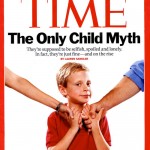I’d like to address something quickly before diving into this week’s Re-Watch of Lost, which I am re-naming “Lost Again”, because Re-Watch isn’t really a word, and I get tired of the dash. I haven’t really expressed my overarching theory of storytelling, especially epic storytelling. There is much to be said of it, but I will skim the surface here, to establish a context in which to continue this project. Writing obviously works on a literal and figurative level, and I am a big believer in the fact that story belongs to God. Of course it can be used and is used by the enemies of God, but God Himself has a story which He shares with humanity in the Scriptures of the Bible, and He is the Creator of Story. This is the reason we have a story arc, and archetypes, and common themes in stories among all the peoples of the earth.
In a way, story works like people work. Our superficial selves can claim anything, our hearts can make sinful choices, we can desire the wrong things and turn from God. What we cannot do is ever get away from the need we have in our spirits to reunite with the God we turned from long ago. In story, the literal telling can be anything, but the figurative telling, the underlying themes, will always go back to the Truth. We need God and are struggling to get to Him, even when we are our own worst enemy. This is especially evident in mythical or epic storytelling. Christian themes will always show themselves on a figurative level, because every story is really a reflection of the One Story of God, of Christ, the Lamb who was slain from the creation of the world. (see Revelation 13:8) I hope this serves to contextualize my critiques of Lost. While the writers sometimes get all whacked out in their literal telling, mixing religions, trying to get literal about Jesus and really messing it up, things like that, there is great Truth to be found in the themes and metaphors of the show.
White Rabbit: Jack continues to see visions of his dead father on the island, while struggling with his desire to save everyone and his inability to do so. In flashback we see Christian, Jack’s father, telling him not to try to save everyone, because he will fail, and when he does, he doesn’t have what it takes to handle that failure. This character flaw will come into play big time in Seasons 5 and 6, when Jack’s struggle to be in control and fix everything melts away as he learns to let go and just see what his role is actually supposed to be. Those seasons are when I really started liking Jack again. And that is when, ironically, he WAS able to save everyone, in a manner of speaking, anyway…when he wasn’t doing it of his own power but of the power of the show’s symbol of good, and therefore of God. For now, though, Jack’s hero complex is tied up with issues of insufficiency in the eyes of his father, and he chases the vision into the jungle. (By the way, messed up father-child relationships are pretty much universal in this show, and most of the flaws of every character relate directly to their relationships with their dads.)
Oh, and hey, the camp needs water. Someone “pinched” the supply. Thanks Locke for letting me use the word “pinched” in my article, and maybe you should lay off the Little Orphan Annie reruns. And then, Charlie says of the water that there “may be more if some git hadn’t nicked it”. Sweet. Only the Weasley brothers talk like that. I love Charlie. Who volunteers to go and find water for the camp? You probably guessed Kate. Normally that would be a fine guess, but not this time. Locke volunteers, of course, because he wants another run-in with the “island” so he can be told again how special he is.
Instead of finding the “island”, Locke finds Jack hanging off the side of a cliff, and pulls him up. Their love-hate relationship really begins here. John asks Jack why he is out in the jungle, and Jack says he’s chasing something that is not there- a hallucination. Locke asks him, “What if you’re not (hallucinating)?” and Jack responds, “Then we’re all in a lot of trouble.” Locke says, “This place is different. It’s special…I’ve looked into the eye of this island, and what I saw was beautiful.” Now, this is a truly fascinating and telling statement by Locke. Are the writers trying to draw a direct parallel between Satan and the Smoke Monster here? Possibly, but that is indeed what is happening whether they realize it or not. Locke is simply relaying what he believes to be true based on what he saw when looking into the black smoke, a vision which I’m sure included a great destiny for him. What Locke was looking into when he saw the “eye” of the island was the heart of the man in black. Satan specializes in lies which contain a little truth, the most believable kind of lie, and that is what we see happening here. Sure, the island is different, special, powerful. But what he saw was not the island, but a lie produced from the heart of a former man with ill-gotten supernatural power.
In Season 6, we see the history of the man in black and how he unwisely sought to possess the power of the island for his own purposes. That power in turn possessed him and he became the smoke monster. The island is not a true God figure, because it is a neutral power, one that needs protection and can be manipulated. Jacob was the primary Christ figure in this series, though not an exemplary one, but the one who was willing to lay down his life and sacrifice for others, and eventually Jack and then Hurley do the same.
In this episode, Jack continues after the vision of his dad, and in doing so, finds water in a cave. In the same cave, he finds pieces of the plane, along with his dad’s coffin, which he had been transporting from Australia to LA when Oceanic flight 815 crashed. This would make it seem the vision was a benevolent one, leading him to water and life, right? Well, we know from the final season that his visions of his dad on the island were actually the man in black (MiB) using Christian’s body. Since the MiB has no real form of his own, he needs bodies to inhabit, and this is supported by Jack opening the coffin and finding it empty. He then takes a baseball bat to it and destroys it, and apparently that was all the therapy he needed, because he heads back to the camp and makes his (famous?) “live together, die alone” speech. Still the hero.
Interesting tidbit I noticed this episode…Charlie’s tattoo: “Living is easy with eyes closed.”
SNT: 16
To Shannon: Sticks
About Jin: Mr. Miyagi
To Kate: Freckles
House of the Rising Sun: Jin and Sun are the focus here. I love their story. It starts out looking like Jin is an overbearing husband and she is a put-upon wife who is dying to be liberated. But as Robin pointed out in her comments a couple of weeks ago, the writers of Lost do an excellent job of taking a story line in an unexpected direction. Even in this episode we get an idea of the complexity of their problems, but of their great love for each other. We also see that Sun knows English, a fact she had been hiding from her husband and everyone else. She had been planning to ditch Jin and her entire life while at the airport, hoping they would think she had been kidnapped and killed, but she decided at the last minute to stay with him. Thus, she ended up on the plane, and on the island. There are some scenes which make this whole wonderful and frustrating series worth watching, and the scene at the airport where she decides this is one of them.
Meanwhile, Jack, Kate, John, and Charlie take a trek to bring back some water from the cave Jack found in the previous episode. Nearby, Jack and Kate find another cave after Charlie steps on a bee hive and breaks it, causing them all to run away while taking off their clothes. If anyone is keeping a tally of Kate’s bra appearances, this is two. Anyway, this scene is a huge deal in the grand scope of the show, because in this scene, they find the two skeletons in the cave, from now on known as “Adam and Eve”, and with one of the skeletons is a little cloth sac containing two stones…one white, one black. Remember the Backgammon scene from Pilot, Part 2, when Locke tells Walt, “Two players, two sides. One is light. One is dark.” This was one of the biggest mysteries of the entire show- who did the skeletons belong to, and how did they get there. Jack tells Kate that someone laid them to rest.
We know now that the bodies belong to the MiB and his mother. We see this in an episode in Season 6 called Across the Sea, when the bodies are laid to rest by Jacob. I love that scene, as this earlier scene with Jack and Kate is cut into it, bringing it full circle.
Also in this episode, Jack decides to try to get the other survivors to move camp to the cave with the water, which seems like a no-brainer, but people are reluctant to because it means admitting that help is not likely to come. They would have to abandon their signal fire. So, the camp splits, and not for the last time.
SNT: 19
To Sayid: Omar
About Sayid: Captain Falafel
To Kate: Freckles










